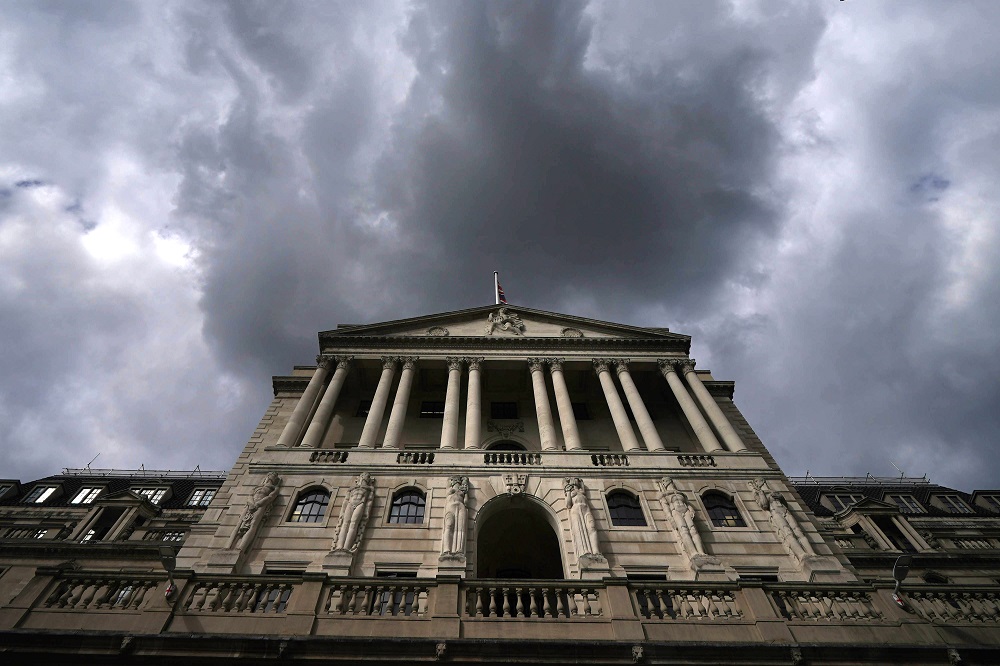Bank of England hikes interest rates for 14th time in a row

The Bank of England heaped further pressure on mortgage holders on Thursday as it hiked interest rates again in yet another bid to get inflation under control.
The Bank warned of “crystallising” risks which were pushing inflation upwards as it decided to increase its base rate to 5.25% from 5%. It is the 14th rate increase in a row.
But in a good sign for the Prime Minister, the Bank said it expects the Government to meet its promise to halve inflation by the end of the year.
The Consumer Prices Index will probably fall below 5% in the final quarter of 2023, it said.
Bank Governor Andrew Bailey said: “Inflation is falling and that’s good news.
“We know that inflation hits the least well off the hardest and we need to make absolutely sure that it falls all the way back to the 2% target.
“That’s why we’ve raised rates to 5.25% today.”
However, in an unusual three-way disagreement, two members of the Bank’s decision-making Monetary Policy Committee (MPC) voted to hike the rate further, while one wanted to keep it unchanged.
Crystallised
The majority said that some of the risks of more persistent domestic inflation had “crystallised,” a word which the bank used repeatedly through its report on Thursday.
It said that increases in private-sector workers’ wages and other factors which could make inflation more persistent had “begun to crystallise.”
The economy had shown “surprising resilience” over several quarters, and the Bank forecast on Thursday that the UK looked set to avoid a recession.
The Bank said that gross domestic product (GDP) is expected to remain sluggish for many years to come.
It said that GDP will rise 0.5% this year, an increase from the 0.25% increase it had previously forecast.
But it downgraded its forecast for 2024 from 0.75% to 0.5% and for 2025 from 0.75% to 0.25%.
It said that its interest rates were “weighing on economic activity.”
It said it would if necessary keep the rate higher for longer to try to get inflation down.
Two MPC members, Jonathan Haskel and Catherine Mann, disagreed with the majority and thought that rates should be hiked to 5.5%.
They said that the Bank had repeatedly underestimated how high inflation would remain and that it was “important to lean more actively against inflation persistence.”
“For these members, a forceful increase in Bank rate at this meeting would help to bring inflation back to the 2% target sustainably in the medium term, and to reduce the risks of a more costly tightening later,” the report from the meeting said.
MPC member Swati Dhingra thought it would be better not to change the rate at all.
She argued that the risks of increasing it too far had continued to build and could create a situation where the Bank would be forced to rapidly slash rates in future.
It takes a long time for rate rises to come through, she added.
Indeed a lot of the drop in inflation that the Bank forecast on Thursday came not from the interest rate hikes it has been making since December 2021, when rates were at just 0.1%, but from the drop in energy bills.
The average household is expected to pay less than £2,000 for their energy when the price cap is next changed in October, the Bank’s forecast said.
Outside the Bank on a sunny Thursday morning, a small protest of around half a dozen people gathered to protest against interest rate hikes.
Support our Nation today
For the price of a cup of coffee a month you can help us create an independent, not-for-profit, national news service for the people of Wales, by the people of Wales.







Constant interest rate hikes have been shown not to really affect inflation, particulary in the short term. It has even been admitted that the aim of interest rate hikes was to create unemployment – so that many do not have the money to spend in the hope that inflation will decrease. However, won’t that ultimately throw us into recession? Probably. Won’t that put a strain on the DWP and through stress our NHS? Probably. Will the hikes see huge bank and energy company profits? Probably. There are other ways to bring down inflation but the government is ignoring them –… Read more »
I would agree wholeheartedly, but perhaps having a thought for our fellow citizens across the Border what we really need is a change of Government in Westminster. This batch of inflation has never been driven by the so called ‘wage-price’ spiral as wages rises in every area except banking and the City have failed to keep pace with inflation. The Chancellor needs to be leaning on companies that have used inflation to maintain or increase their margins using a novel method know as Taxation. Similarly rents, profits and directors bonuses have all been pushing up inflation. The tools available to… Read more »
There it stands but what does it stand for? The only image we ever see of The Bank of England sitting upon high looking down on its’ victims as it perpetuates an inescapable scam working hand in glove with the Tories to destroy lives, delivering destitution by financial annihilation sparked by the economic illiteracy of the five minute Prime Minister. The purpose of hiking interest rates is to make the rich richer to shore up their votes while the poor can literally die for all the perpetrators care. They are simply clearing us out pending themselves clearing off.